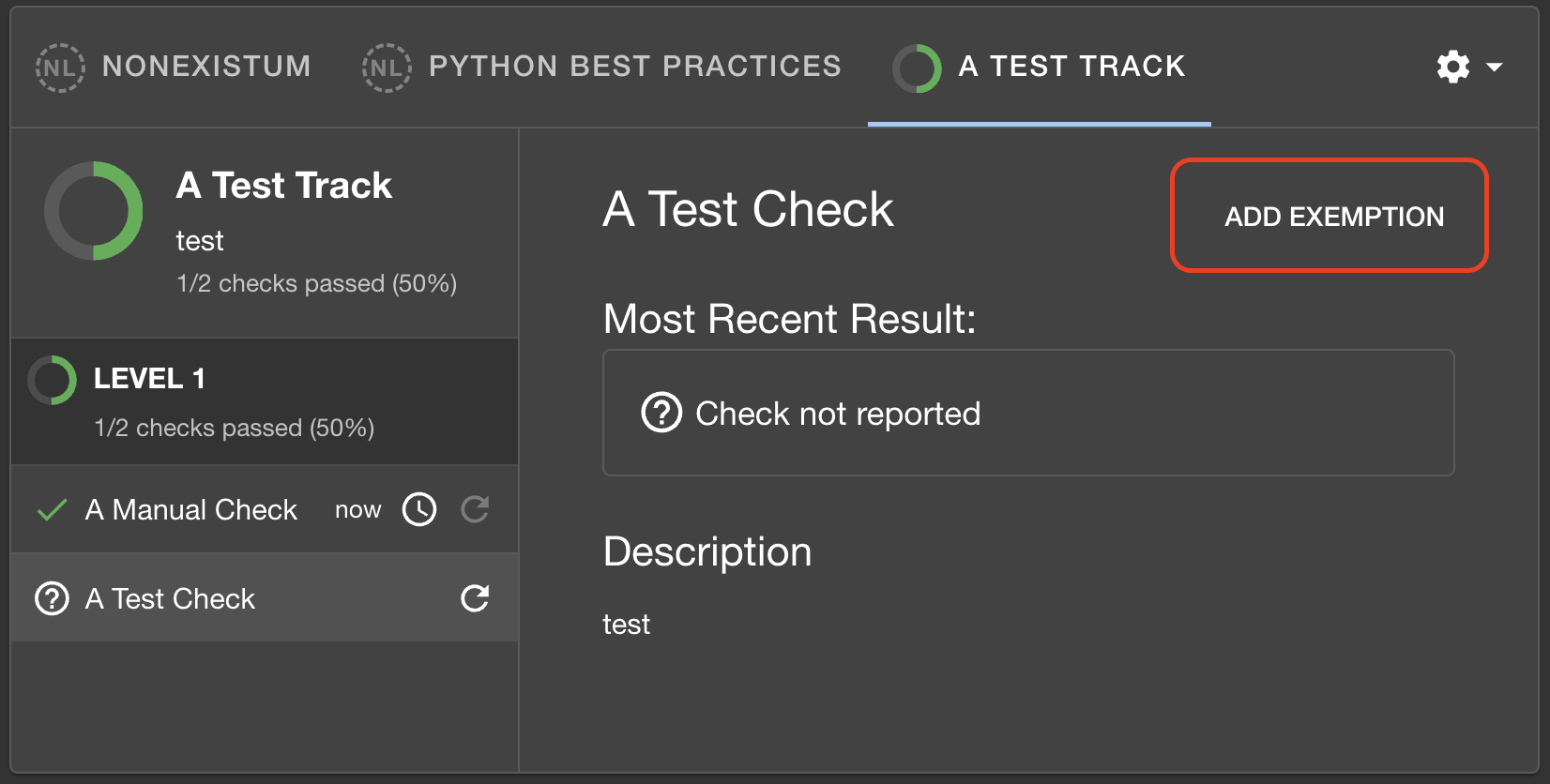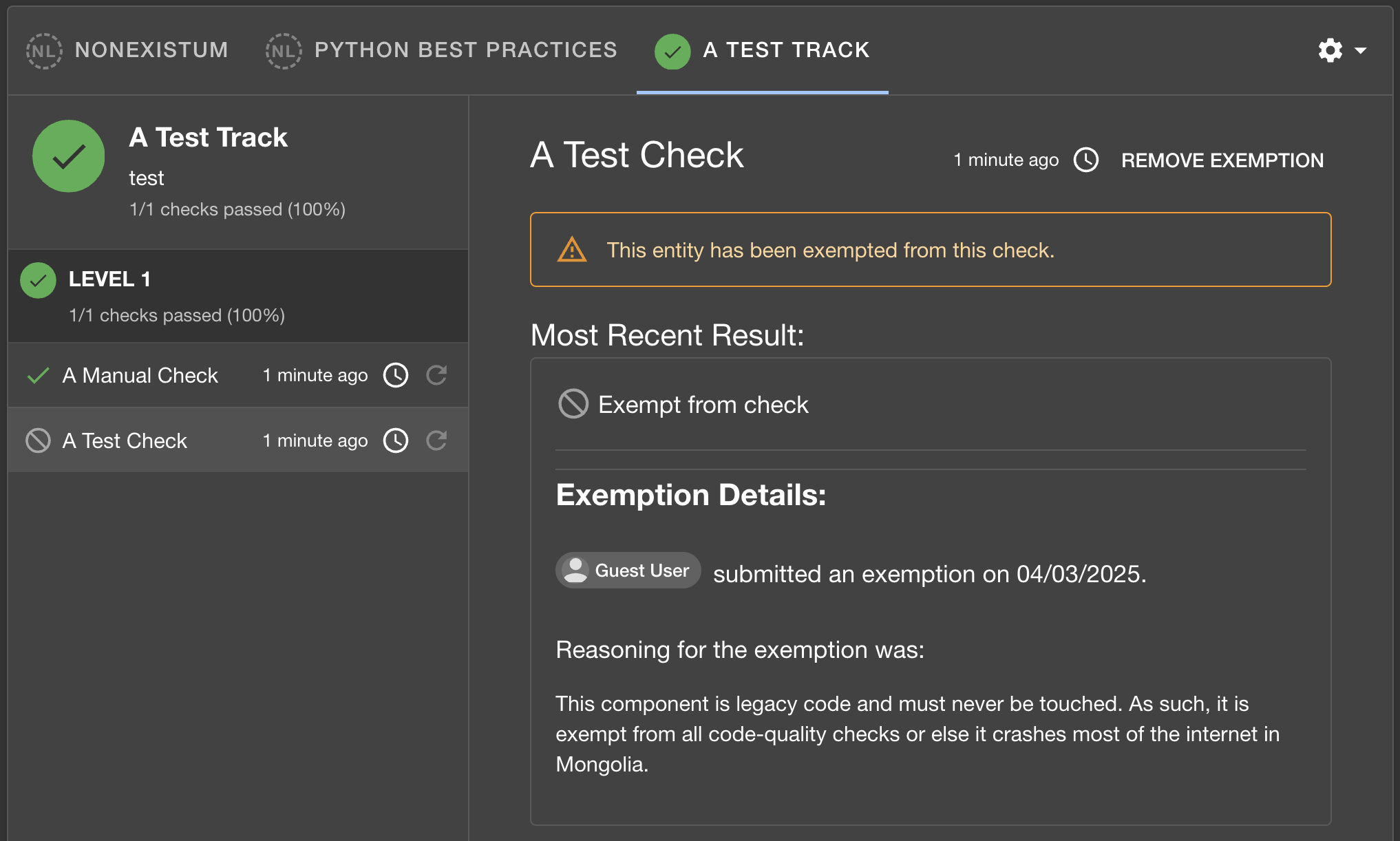Check Exemptions
Soundcheck allows components to be exempted from checks. An exemption, in this context, means that the check will not be executed for the exempted component and that the check is considered to be passing for that component. This is useful for components that are not relevant to a check but that nonetheless are selected by the check's filter, or for components that for whatever reason cannot pass the check but should not be considered to be failing.
While the exemption functionality is intended to be used sparingly, Soundcheck makes no restrictions on the number of exemptions that can be created.
Note: Like manual check entries, all exemptions are recorded in the Soundcheck audit logs, preserving details like the justification for the exemption, the user who created it, and the time at which it was created.
Creating an Exemption
To exempt a component from a check, navigate to the entity's Soundcheck tab, select the track that
contains the check from which you wish to exempt the component, and click on the check to view its
details. In the details pane, click on the Add Exemption button in the top-right corner of the pane
(outlined in the image below):

Clicking the button will open a pop-up to create the exemption. The exemption requires a justification:

Once the exemption is created, the check will be considered to be passing for the exempted component,
but will not be show in the list by default. To view the exemption, click on the small gear icon
beside the list of Tracks for the component, and select Show Exempt Checks:

Now the exemption will be shown in the list of checks for the component, along with an alert that the component is indeed exempt from the check:

Permissions to Create Exemptions
The exemption functionality added the soundcheck.entity.exemptions.update permission to the plugin.
This is a resource permission, and so can have a policy set based on the component for which an
exemption is being created/deleted. A common use case may be "allow only the owner of the component to
modify exemptions for it". By default, this permission is granted by RBAC unless a policy has been
set to deny it.